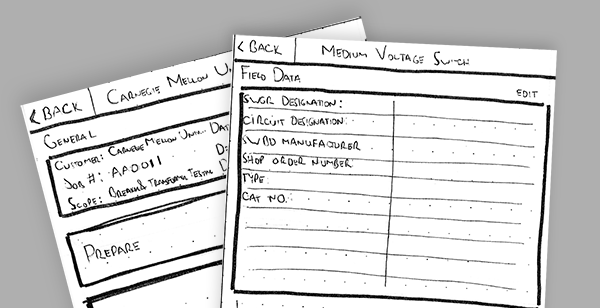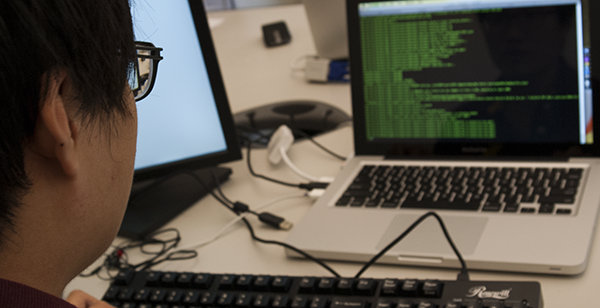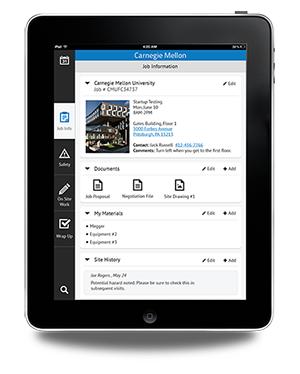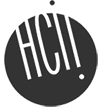Our Goal
Support the Eaton community by improving data access, simplifying information handling, and streamlining operations.
Overview
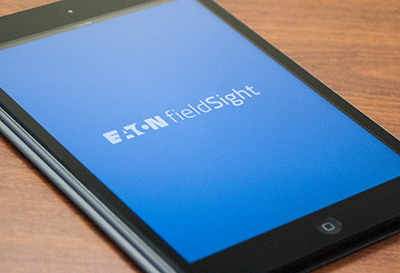
Each year, students pursuing the Master of Human-Computer Interaction (MHCI) degree at Carnegie Mellon University complete a sponsored capstone project. In 2013, Team Arc worked with Eaton Corporation to streamline procedures for Managers, Coordinators, Field Service Representatives, and more in the Electrical Services & Systems division. Over seven months, we travelled to seven Eaton locations across the nation to interview employees, learn about how the EESS works as a company, and test our designs. Our project culminated with the design of FieldSight, a vision for a new suite of software and a tablet application for Field Service Representatives that helps speed up portions of their job and share information quickly with other employees.
Research
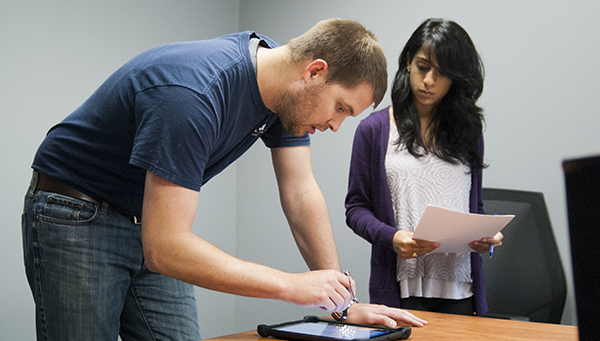
User Research
We gained a holistic view of the EESS by interviewing employees in multiple locations and across various positions. Our methods consisted of site tours, focus groups, and contextual interviews, in which we sat down with our participants as they went about their work. Through contextual interviews, we were able to observe nuanced aspects of our users' work that may otherwise have gone unnoticed. We sampled a total of 21 participants with varying expertise from beginners to 20-year veterans and discovered that DOCs are diverse in personality, the way they approach processes, and the software they use to get the job done.
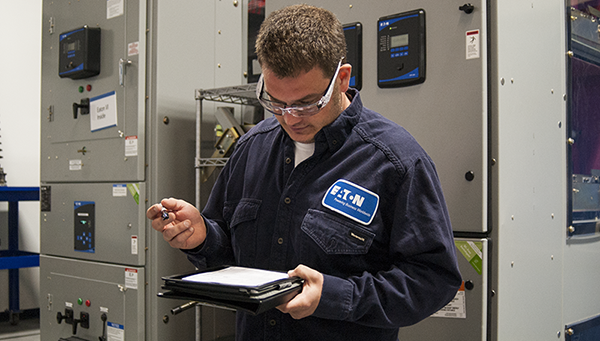
Synthesis
Our research generated tons of data. In order to make sense of it all, we spent a month synthesizing and modeling our notes. We constructed three affinity diagrams to reveal common patterns between Managers, Coordinators, and Field Service Representatives. We also made flow models to visualize the complex exchange of information between Eaton personnel and sequence models to isolate the steps in work tasks.
Findings
We gained a holistic view of the EESS by interviewing employees in multiple locations and across various positions. We sampled a total of 21 participants including Zone Managers, DOC Managers, DOC Coordinators, and Field Service Representatives with varying expertise from beginners to 20-year veterans. We discovered that DOCs are diverse in personality, the way they approach processes, and the software they use to get the job done. Our methods consisted of site tours, focus groups, and contextual interviews, in which we sat down with our participants as they went about their work. Through contextual interviews, we were able to observe nuanced aspects of our users' work that may otherwise have gone unnoticed.
